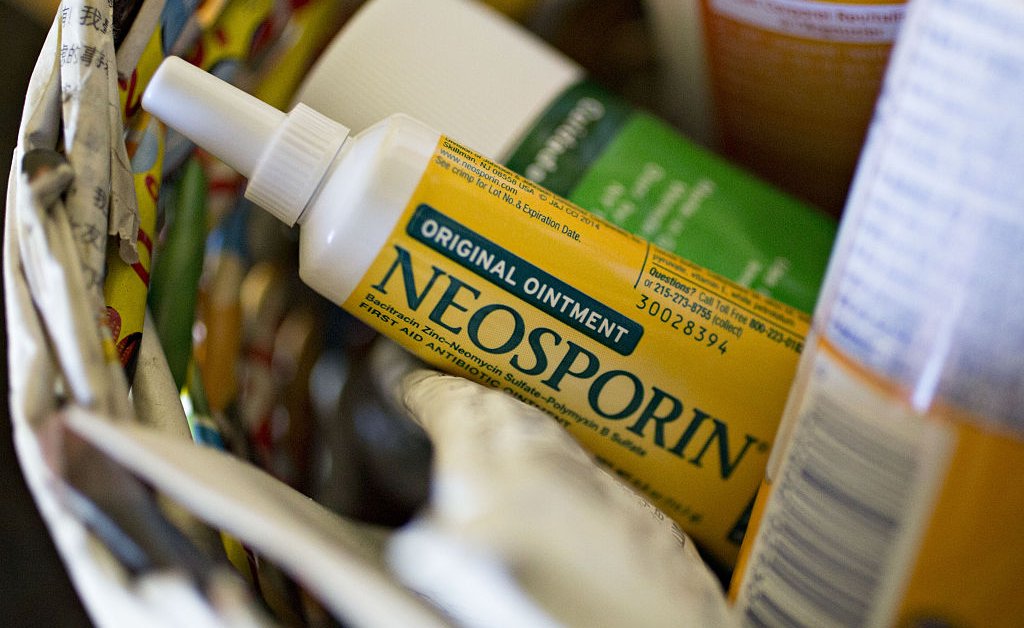FFor many years, researchers have working on vaccine research The aim is to prevent viral infections by strengthening the immune defenses in the nose, which is the entry point for viruses into the body.
a small study recently published PNAS presents a similar, albeit less technical, idea. Applying the over-the-counter antibiotic ointment Neosporin to the inside of your nose may trigger an immune response that may help your body fight off the respiratory virus that causes COVID-19 and the flu, a study shows. Suggested.
The study raises the idea that Neosporin may act as an “additional layer” of protection against respiratory diseases, on top of existing tools such as vaccines and masks, said co-author of the study and Yale Akiko Iwasaki, an immunobiologist at the university's medical school and one of the researchers, said.us leading Nasal vaccine researcher.
This study is based in part on Iwasaki's research. Previous researchThis indicates that similar antibiotics can induce potentially protective immune changes in the body, but it is still preliminary, she cautions. In the new study, her team had 12 participants apply Neosporin twice a day in their nostrils for a week, and another seven people used Vaseline for comparison. At several points during the study, the researchers swabbed participants' noses and administered PCR tests to see what was going on inside.
read more: How to deal with bunions
Researchers found that Neosporin, and specifically one of its active ingredients, the antibiotic neomycin sulfate, “tricks you into thinking there is a viral infection” and stimulates receptors in your nose, resulting in a “protective barrier against any virus.” They found that it appears to form a '' explains Mr. Iwasaki. In theory, she says, that means it could protect against a variety of infections.
However, at this point it's just a theory. In this study, Iwasaki's team did not take the next step of testing whether a person's immune response actually protects them from infection when they are exposed to the virus. Part of the reason is that intentionally exposing people to pathogens for research is ethically questionable. (However, rodents whose noses were coated with neomycin demonstrated protection from the virus that causes COVID-19.)
On that website, The manufacturer of Neosporin says It says the product “has not been tested or prescribed to prevent COVID-19 or any other virus,” and that it is not recommended to put the product in the eyes, nose, or mouth.
Dr. James Crowe, director of the Vanderbilt Vaccine Center who was not involved in the study, said the study is “interesting” but he needs to see more human data before getting excited. “I'm skeptical that it would have a strong effect on humans,” Crowe says. “Even if it has only a small effect against the virus, is it enough to really provide clinical benefit?”
It's somewhat counterintuitive to think that antibiotics that kill bacteria can do anything to protect people from viruses. Iwasaki explains that antibiotics are not directly effective against viruses. Rather, when neomycin is applied topically, it appears to trigger changes in the body that help fight viruses, essentially causing a natural antiviral effect.
So should I apply Neosporin to my nose? The next time a wave of new coronavirus infections hitsNot so fast, says Dr. Benjamin Breyer, a specialist in nasal disorders at Massachusetts Eye and Ear, Nose and Throat. nasal immunity.
read more: Americans wary of coronavirus feel abandoned
Professor Bleier, who was not involved in the new research, called the study “very well done” but said there were questions that needed to be answered before it could reach “the prime clinical stage”. Says. First, if antibiotics are used regularly in this way, could the body develop resistance or resistance to neomycin? (Antibiotic resistance is a growing concern, Overuse or inappropriate prescription of antibiotics Second, can the average person apply neomycin deep and thoroughly enough to provide meaningful protection? Finally, can this approach damage the delicate lining of the nose or take time? Can it cause other side effects over time? (Even in small studies, one person who used intranasal Neosporin dropped out due to mild side effects apparently related to drug allergies.) Did.)
“This is great science, but we still have a long way to go before we can get it into our noses,” agrees Dr. Sean Liu, an infectious disease physician at New York's Mount Sinai Health System.
Iwasaki agrees that more research is needed. She says the next step is to test higher doses of neomycin, as Neosporin contains fairly small amounts of neomycin, which may not be enough to provide strong protection in humans. To collect more data, researchers followed people as they lived their normal lives, with the exception of those who applied neomycin or Vaseline to their noses, and one group was compared to the other. She says they could see if they get sick less often than other groups, but that would take a lot of time and people.
Despite the difficulties, Liu says there is good reason to continue further research. Finding new uses for affordable and widely available medicines is good for public health, and progress toward neutralizing the virus is welcome. If this approach proves effective, it could also be useful to have a tool that is effective against a wide range of viruses and could be combined with other drugs to enhance its effectiveness. Crowe added that there is a gender.
Additionally, additional disease prevention tools could help people who are particularly susceptible to respiratory illnesses, Iwasaki says. People with weakened immunity— and need additional protection to feel safe. If further research proves promising, one might imagine neomycin serving as an additional disease-fighting tool when people are in particularly germ-rich areas, such as crowded parties or airports. says Mr. Iwasaki.




